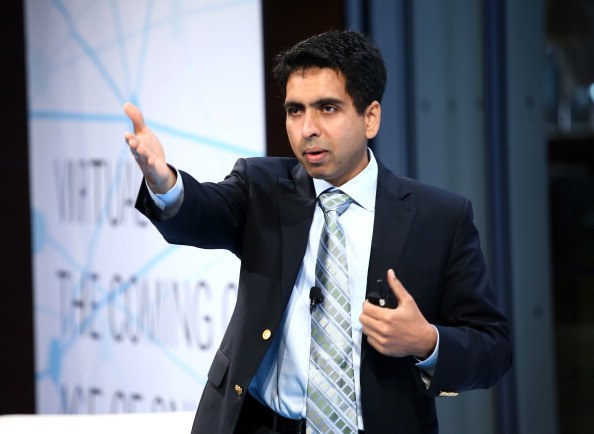
“A free, world-class education for anyone, anywhere,” Khan Academy is a non-profit educational organization founded in September 2006 by Bangladeshi-American educator, entrepreneur, and former hedge fund analyst Salman Khan. The free online education platform features thousands of educational resources, including a personalized learning dashboard, over 100,000 practice problems, and over 6,000 micro lectures via YouTube video tutorials created by Khan. Growing in schools throughout the world, the platform’s subjects include math, history, healthcare, medicine, finance, physics, chemistry, biology, astronomy, cosmology, American civics, art history, economics, music, and computer science. As of 2013, Khan Academy was used by 10 million students per month while its micro lectures have been watched over 468 million times. Below are five things you might not know about Khan Academy.
5. Criticism
Critics of Khan Academy have argued that the website’s videos and software encourage uncreative and repetitive drilling that leaves kids staring at screens rather than interacting with teachers. Khan has even acknowledged that he’s not a professional educator and usually ad-libs many of his low-fi videos. However, Khan’s site has become extremely popular and his tutorials have helped millions of students master difficult subjects.
4. International Recognition
Khan Academy and its founder has gained both national and international recognition and has garnered numerous awards since its inception in 2006. Awards and recognition include the Microsoft Tech Award for education in 2009 and a 2012 feature on CBS’ 60 Minutes, while Khan himself has won the prestigious 2014 Heinz Award in the area of “Human Condition” and was listed among Time‘s 100 Most Influential People for 2012.
3. Khan Academy’s Supporters
The not-for-profit organization has significant backing from a number of different high profile individuals and organizations. Khan Academy has been supported by the Bill and Melinda Gates Foundation (Bill Gates has said he has used the educational resource with his own children), Ann and John Doerr, the Brazil-based Lemann Foundation, Netflix CEO Reed Hastings, and Google–which provided $2 million in 2010 to support the creation of more courses and allow for the translation of its content.
2. #YouCanLearnAnything
Launched in August of this year, Khan Academy’s newest campaign, #YouCanLearnAnything, is designed to encourage lifelong learning and acknowledge the role of struggling student skill development. With the introduction of this campaign, students, teachers, and parents can track progress across different subjects through a dashboard and can find discussion guides and “growth-mindset interventions” including explanations of the theory from Khan himself and even inspirational stories from various celebrities. According to Khan Academy, “failing is just another word for growing.”
1. Salman Khan
Born in Metairie, Louisiana to Bangladeshi parents, Salman Amin Khan attended both the Massachusetts Institute of Technology, where he earned a Master of Science degree, and Harvard Business School, where he earned a Master of Business Administration degree. Khan founded Khan Academy after he noticed the effectiveness of the YouTube educational videos he was creating for his cousin and began posting videos to his channel from a small office in his home. Khan has since been named one of the 11 inaugural members of the Presidential Ambassadors for Global Entrepreneurship.
Photo by Neilson Barnard/Getty Images for The New York Times
